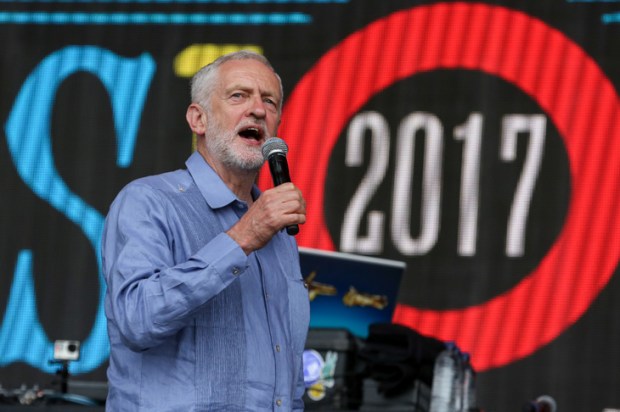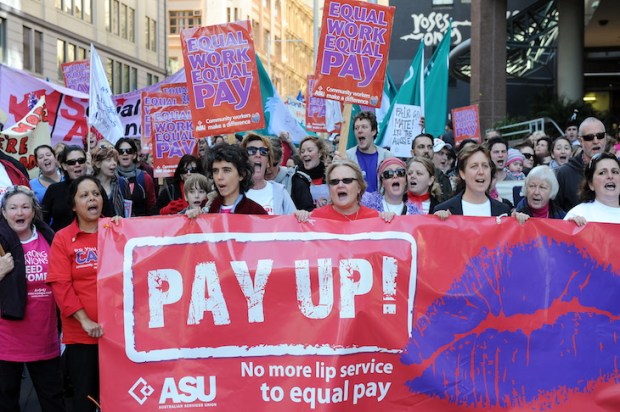On Tuesday night I went to a birthday party for my father at the House of Commons. Hosted by the Labour MP Rushanara Ali, it was an enjoyable affair, full of left-wing journalists and maverick social entrepreneurs. I chatted to the Independent’s Andy McSmith, Prospect founder David Goodhart and the newly ennobled Lord Bird of Notting Hill, who set up the Big Issue.
My dad wasn’t there, unfortunately. He died in 2002 and this was an event organised by the Young Foundation, a sort of incubator for social enterprises that he set up in 1954 and which is still going strong. It was to celebrate the centenary of his birth and I couldn’t help but wonder what he would have thought of me if he were still alive.
I’m sure most people whose fathers are no longer around occasionally think about this. But I don’t have a choice because a day doesn’t go by without some wag on Twitter claiming my dad would be ‘spinning in his grave’ thanks to my latest outrage — standing up for Boris Johnson on Channel 4 News, for instance, or writing an article in the Daily Mail. Remember the abuse Hilary Benn got when he spoke in favour of Syrian airstrikes in the House of Commons? Well I get that all the time.
The first thing to be said about this kind of attack is that it’s a species of ad hominem. You’re not being criticised because your position is poorly argued or unsupported by the evidence, but because it’s a point of view your father would have disapproved of. The correct response is: ‘So what?’ Not only is that completely irrelevant from an intellectual point of view — the Labour son of a Conservative isn’t wrong because his father would have frowned upon him, so why should the opposite hold true? — it’s also a poor psychological argument. Surely, a man who holds exactly the same views as his father is likely to be less thoughtful than one who disagrees with him on some issues?
Another irritating thing about this complaint is that when you think about it, it’s actually a criticism of my father, not me. What the opponent is really saying is: ‘Your father was such an unbending fanatic that fealty to his socialist principles would have trumped filial love.’ No doubt such monsters do exist, particularly on the left, but my father wasn’t one of them. Having known him for the first 37 years of my life, during which time we disagreed about a great many things, I can confidently say that wasn’t true. On the contrary, he liked nothing more than a good political argument, a trait he passed on to me. That’s one of the reasons we enjoyed each other’s company. Indeed, if we’d seen eye to eye about more things, I doubt we would have got along so well.
In spite of all this, the criticism does sting, as you can probably tell. Deep within all of us is a desire not just to be loved by our fathers, but to win their approval, too. According to Freud, this is the origin of Protestant morality. We start out wanting to kill our fathers so we can have our mothers to ourselves — this is the Oedipal phase, which peaks at age four or five — but learn to suppress these atavistic impulses in deference to our father’s authority. As we get older, this authority figure becomes internalised in the form of the conscience. That voice we hear inside our heads, telling us not to give in to temptation, is the voice of our father.
So, inevitably, at this House of Commons event, as I talked to my father’s surviving friends about what I’ve been doing since we last met, I was scanning them for signs of approval or disapproval, as if that would have provided a clue to how my father would have felt. The six–million-dollar question is: ‘What would he have thought of free schools?’ It’s my advocacy of that policy, above all else, that has prompted the ‘spinning in his grave’ comments.
Imagine my delight, then, when a former chief executive of the Young Foundation shook me warmly by the hand and told me he was setting up a free school in Dulwich. That clinches it, as far as I’m concerned. Henceforth, anyone claiming my father would have disapproved of free schools can go hang.
Got something to add? Join the discussion and comment below.
Get 10 issues for just $10
Subscribe to The Spectator Australia today for the next 10 magazine issues, plus full online access, for just $10.















Comments
Don't miss out
Join the conversation with other Spectator Australia readers. Subscribe to leave a comment.
SUBSCRIBEAlready a subscriber? Log in